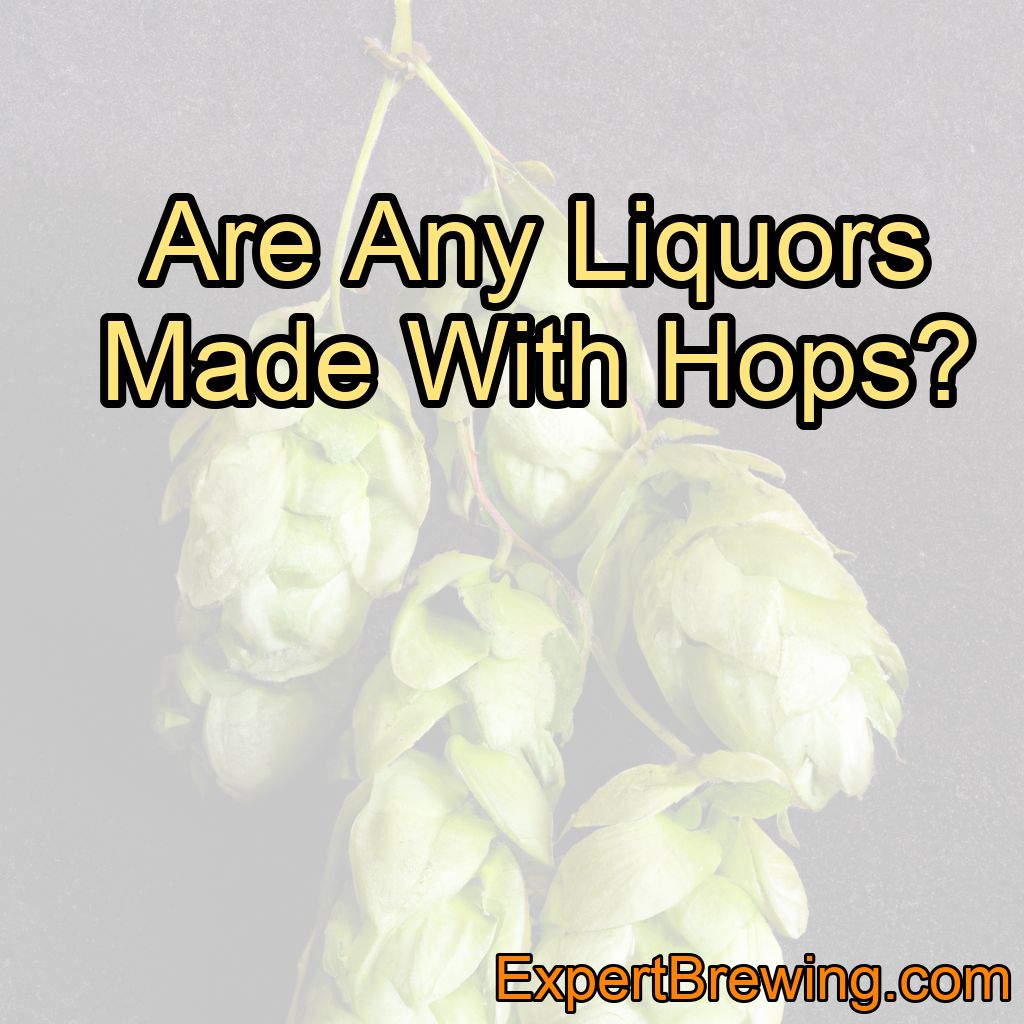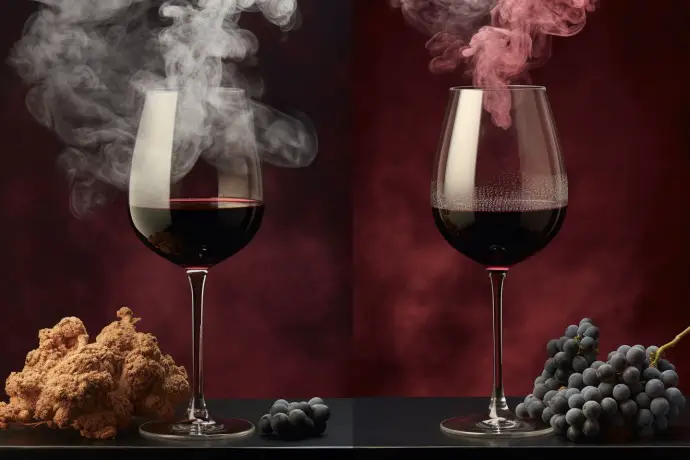Are any liquors made with hops?
The short answer is yes. While hops are primarily known for their use in beer brewing, they are also used in the production of certain types of liquors, particularly herbal liqueurs and distilled spirits.
In this blog post, we’ll delve into the world of hop-infused liquors, exploring their history, production methods, and flavor profiles, as well as some popular examples you may want to try. As an experienced brewer, I’ve had the pleasure of experimenting with hops in various ways, and I’m excited to share my knowledge with you.
History of Hops in Alcohol Production
Hops have been used in alcohol production for centuries, dating back to at least the 11th century when hopped beer was first documented in Europe.
Hops were initially used for their preservative qualities and their ability to impart a pleasant bitterness to beer, which helped to balance out the sweetness of the malt.
Over time, the use of hops in brewing became more widespread, and their unique flavors and aromas became highly valued.
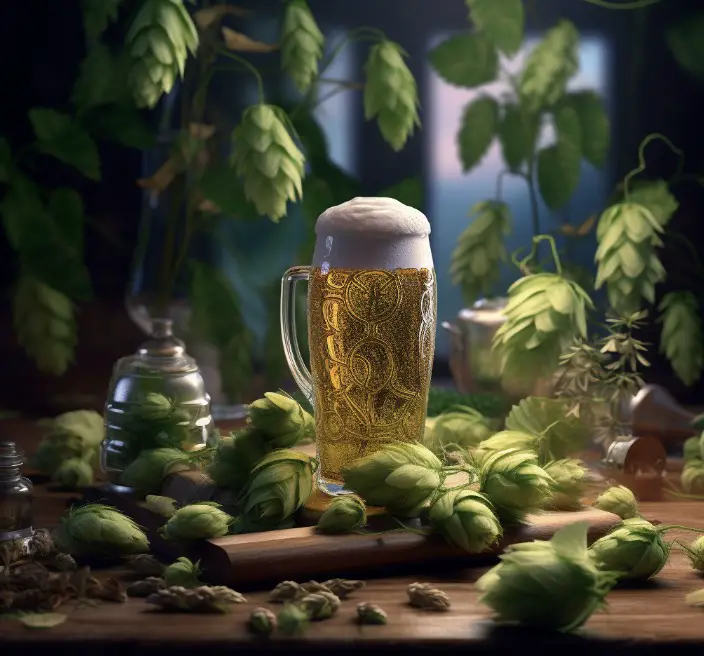
In addition to their use in beer, hops have also been used in the production of various herbal liqueurs and distilled spirits.
Monks in medieval monasteries often experimented with different combinations of herbs, spices, and botanicals to create medicinal tonics and elixirs – some of which eventually evolved into the liqueurs and spirits we know today.
Hops in Herbal Liqueurs
Herbal liqueurs are made by infusing a base spirit (typically a neutral grain alcohol or brandy) with a blend of herbs, spices, and other botanicals. Hops are sometimes included in these blends for their bittering properties and distinct flavor profile.
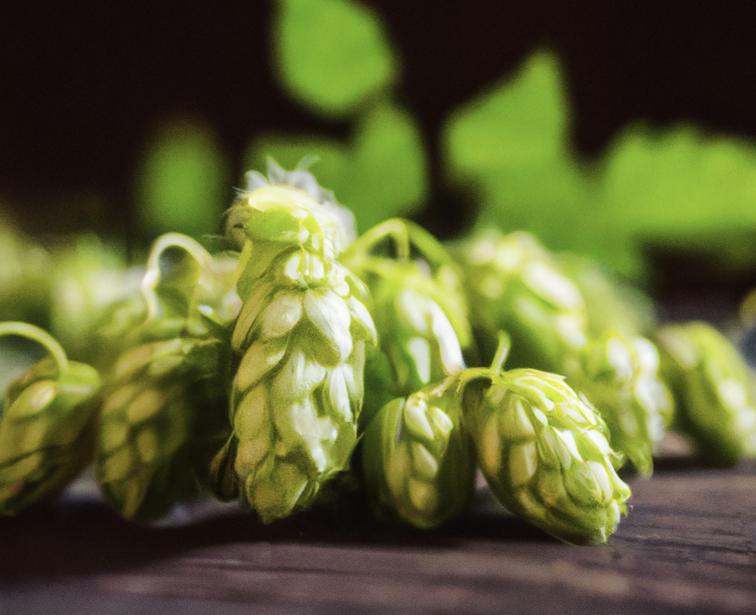
One popular herbal liqueur that uses hops is Bénédictine, a French liqueur that dates back to the 16th century. This liqueur is made with a secret blend of 27 different herbs and spices, including hops, and is known for its complex and well-balanced flavor.
Hops in Distilled Spirits
While hops are not a primary ingredient in most distilled spirits, they can be used to add unique flavors and aromas to the final product. Some craft distilleries have experimented with using hops in the production of gin and whiskey.
Hopped Gin
Gin is a distilled spirit that is flavored with a variety of botanicals, most notably juniper berries. Some craft distillers have begun to experiment with adding hops to their gin recipes, creating a unique and interesting flavor profile. Hopped gin often features a bright, citrusy character with a subtle bitterness that complements the botanical flavors of the spirit.
One example of a hopped gin is _St. George Spirits Dry Rye Reposado Gin_, which is distilled with a blend of botanicals that includes both juniper berries and hops. The hops lend a distinct grapefruit-like flavor to the gin, which is aged in oak barrels to add further complexity.
Hopped Whiskey
Whiskey is typically made from a fermented grain mash that is distilled and aged in oak barrels. While hops are not a traditional ingredient in whiskey production, some craft distilleries have started to experiment with adding hops to their recipes. Hopped whiskey generally has a bold, hop-forward flavor that is reminiscent of an IPA (India Pale Ale) beer.
An example of a hopped whiskey is Charbay Hop Flavored Whiskey, which is distilled from a craft IPA beer and aged in oak barrels for several years. The final product has a strong hop flavor and aroma, with notes of citrus and pine.
Hops in mead brewing
While mead is not specifically considered a liquor, it was one of the strongest alcoholic beverages available in ancient times.
The Vikings, known for their seafaring prowess and warrior culture, had a rich history of brewing and consuming mead. Mead, a fermented honey beverage, was a staple of Viking life and played an important role in their feasts and celebrations.
While there is limited historical evidence specifically pointing to the Vikings’ use of hops in mead production, it is plausible that they may have utilized hops in certain instances.
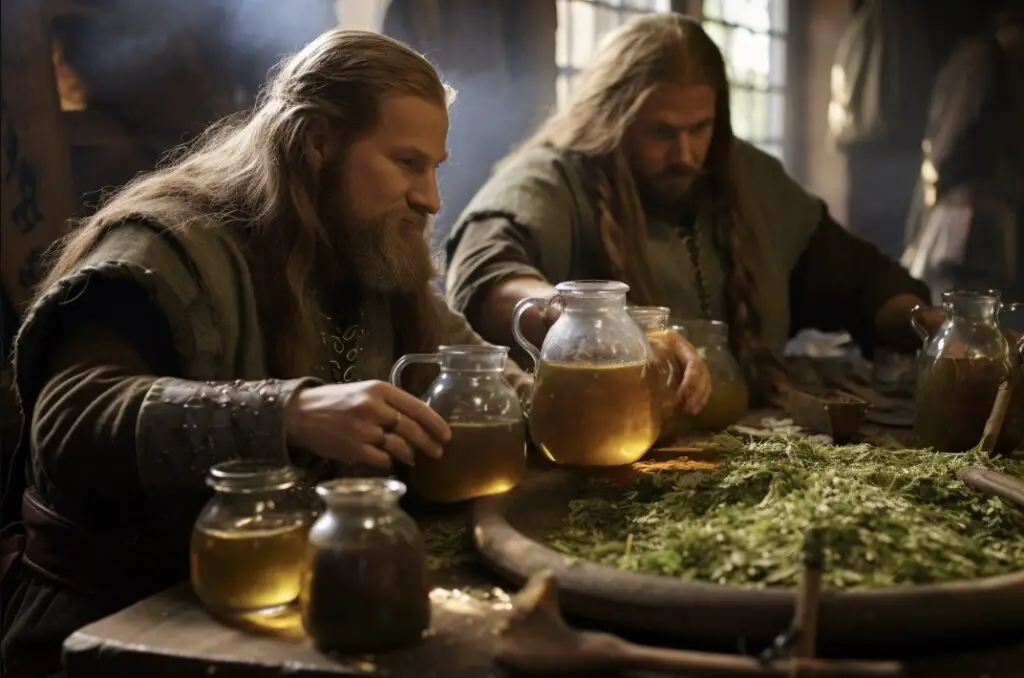
During the Viking Age, which spanned from the late 8th century to the early 11th century, hops were not as widely cultivated or used in brewing as they are today.
Hops were primarily introduced to Europe by the Romans, but their cultivation and widespread use didn’t become prevalent until the medieval period. This timing places the Vikings at a stage where the use of hops in mead production would have been less common.
However, it is important to note that Vikings were known to adopt and adapt practices from various cultures they encountered through their extensive trading and raiding activities. They traveled to regions where the use of hops in brewing was more established, such as parts of Europe.
It is plausible that during their interactions with these cultures, the Vikings may have learned about the use of hops and potentially incorporated them into their mead-making process.
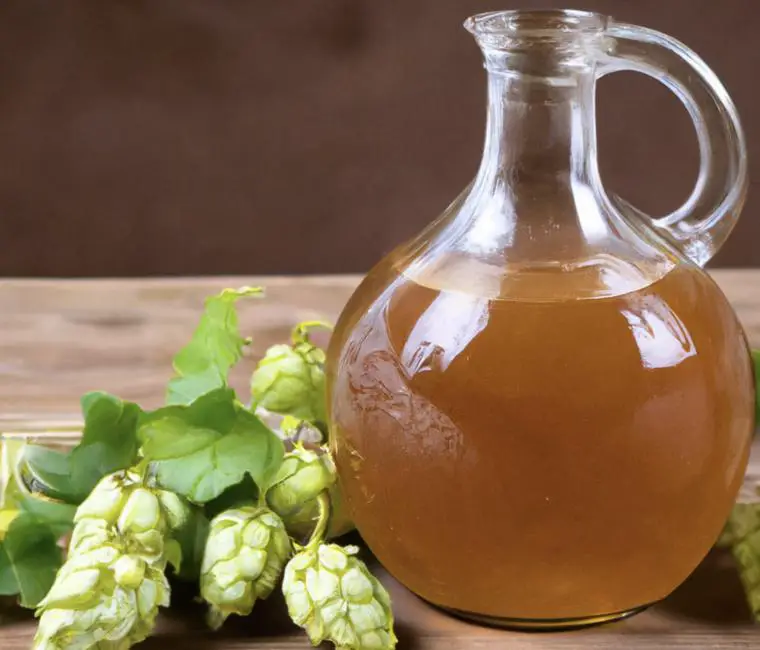
Hops serve several purposes in brewing, such as providing bitterness, aroma, and acting as a natural preservative.
These qualities would have been beneficial to the Vikings, as their long voyages and explorations necessitated the storage of provisions, including mead, for extended periods. The antimicrobial properties of hops could have helped prevent spoilage and maintained the quality of the mead during their expeditions.
Additionally, hops would have added a distinct flavor profile to the mead. While the Vikings typically relied on the natural fermentation of honey for sweetness, the bitterness and herbal notes contributed by hops would have provided a counterbalance and complexity to the flavor.
It is important to remember that Viking mead-making techniques varied regionally and even within individual households, so the inclusion of hops would have depended on factors such as availability, cultural exchange, and personal preferences.
Unfortunately, due to the scarcity of written records from the Viking Age, conclusive evidence regarding the use of hops in Viking mead remains elusive. However, considering the Vikings’ penchant for exploration, trade, and their willingness to adopt new ideas, it is not far-fetched to speculate that they might have encountered and experimented with hops, integrating them into their mead-making practices on occasion.
The precise extent of their utilization of hops in mead production may forever remain a mystery, but the legacy of Viking mead continues to capture the imagination of enthusiasts and historians alike.
Home Infusions and Experiments
For those interested in experimenting with hops in their own home bar, you can try creating your own hop-infused spirits. Simply add a small amount of hops to a bottle of your favorite spirit, such as vodka or gin, and let it infuse for a few days to a week. The resulting infusion will have a unique hop flavor and aroma that can be used in cocktails or enjoyed neat.
Hop-Infused Cocktails
For cocktail enthusiasts, hop-infused spirits and liqueurs can be used to create some truly unique and delicious drinks. For example, try using a hopped gin in a classic Gin & Tonic or Martini, or mix a hopped whiskey with some fresh citrus and simple syrup for a refreshing Whiskey Sour.
Conclusion
In conclusion, while hops may be best known for their use in beer, they can also play a role in the production of certain types of liquors. From herbal liqueurs to distilled spirits like gin and whiskey, hops can be used to add unique and interesting flavors to a wide variety of alcoholic beverages. So, if you’re a fan of hops, why not give some hop-infused liquors a try?
Here are ten quick facts about hop-infused liquors:
1. Hops are primarily known for their use in beer brewing.
2. They have been used in alcohol production since at least the 11th century.
3. Hops are used in some herbal liqueurs, such as Bénédictine.
4. Some craft distilleries use hops in the production of gin and whiskey.
5. Hopped gin often features a bright, citrusy character.
6. Hopped whiskey typically has a bold, hop-forward flavor.
7. You can create your own hop-infused spirits at home by adding hops to a bottle of your favorite spirit.
8. Hops can be used to create unique cocktails like hop-infused Gin & Tonics or Whiskey Sours.
9. Hop-infused liquors can add an interesting twist to your home bar.
10. Experimenting with hops in different alcoholic beverages can lead to new and delicious flavor combinations.
FAQs
Are hops used in whiskey?
Hops are typically not used in whiskey production. Whiskey is primarily made from fermented grains, such as barley, corn, rye, or wheat. Hops are commonly used in beer production to add bitterness, flavor, and aroma, but they are not a traditional ingredient in whiskey.
What alcohol doesn’t have hops?
Whiskey is an alcohol that doesn’t have hops.
What hops are used in Scotch?
Scotch whisky typically does not contain hops. Hops are primarily used in the brewing process of beer, not in the production of whisky. Instead, Scotch whisky is made from malted barley, yeast, and water, and it undergoes a process of fermentation, distillation, and aging in oak casks.
Is there hops in liquor?
Yes, there can be hops in certain types of liquor, particularly in craft beers and some distilled spirits. Hops are a key ingredient in beer production, providing bitterness, aroma, and flavor. However, not all liquors contain hops, as different types of alcohol have different ingredients and production methods.
Is hops in all alcohol?
Hops is not present in all types of alcohol. While hops are commonly used in the brewing process of beer, they are not typically found in other types of alcoholic beverages such as wine or spirits. Hops are primarily used in beer production to add bitterness, aroma, and flavor to the final product.
What alcohol does not have hops?
One example of an alcoholic beverage that does not contain hops is mead. Mead is an ancient fermented beverage made from honey, water, and yeast, and it predates the use of hops in brewing.

